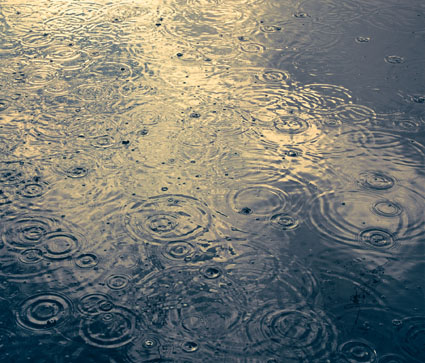
We Can See More With The Camera Eye
Resonance In Blue And Gold I A, Charlottesville, Virginia, 2000
The camera does not see as we see. While it can reproduce the appearance of human vision, it can do so much more. Only two percent of our field of vision is in focus at one moment in time; it can focus one hundred percent of its field of vision. Our angle of vision is less than one hundred eighty degrees; it can be extended up to and even beyond three hundred and sixty degrees in all directions. It can see microscopically and telescopically. It can see in brighter, darker or contrastier light – and even into other portions of the spectrum. It can see in a fraction of a second or over a span of hours, days, months, and even years. With the camera, we have made a marvelous extension of our sense of sight, one that continues to evolve.
I’m fascinated by photographs that reveal more than the eye human eye can perceive. Whenever photographs show me more than I saw, I feel as if a magic trick has been performed. This is one of those photographs. I saw the patterns the rain made in the water but I never saw them like this, until I made the photograph. They were too complex and fast-moving to take in all at once. Because the photograph holds them still, I can spend more time considering them, and my understanding of them grows over time.
While I celebrate the marvelous capabilities of the camera eye, I’m not unmindful of the challenging questions that our use of it raises. At what point do we modify our understanding of our own direct experiences to the documents we create? Which has greater authority? When does a photograph supplant memory? What do we consider to be more factual? What do we consider to be truer?
It’s often said that as you deepen your understanding of something, the number of questions you have about it grows. Over time, I’ve come to love the questions even more than the answers. Sometimes revealing, usually stimulating, always useful, questions can have more than one answer and point the way to many new things.
How many ways can photography help you see and experience more?
How can the ways of seeing you learn through photography be extended to moments when you are not photographing?
Are there ways that photography limits your seeing?
Are there ways that what you have learned from photography limits your seeing?



spiritlakephoto
03.01.2013 at 09:59This is a deceptively simple post, with enormous depth. Really excellent. Thanks.
julie
04.01.2013 at 22:28John Paul, I too find the process of formulating the questions often more exciting than finding the answers.
Julie Stephenson